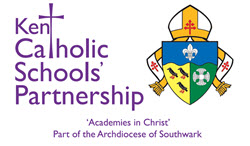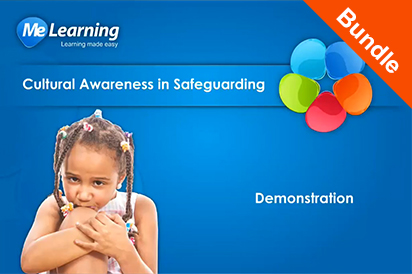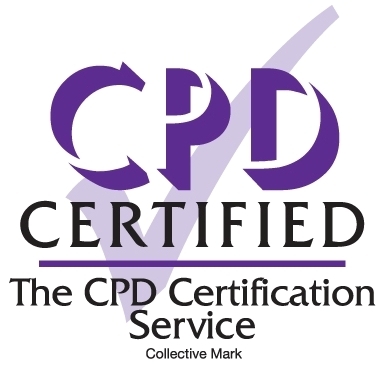


KCSP CPD online training systemYour personal learning site |
This comprehensive course will help you to understand the safeguarding issues around 'honour-based' violence, forced marriage, female genital mutilation, and abuse related to beliefs in witchcraft. It also provides important advice and guidance for professionals.

This course contains the following modules:
| Module name | Type | Duration |
|---|---|---|
| Understanding the community | Online | 00:22:00 |
| What are forced marriage and honour-based violence? | Online | 00:22:00 |
| The victims and perpetrators | Online | 00:27:00 |
| Barriers to change | Online | 00:16:00 |
| Challenges for the professional | Online | 00:22:00 |
| The hard facts | Online | 00:30:00 |
| The beliefs behind FGM | Online | 00:30:00 |
| The impact of FGM | Online | 00:30:00 |
| Challenges for the professional | Online | 00:20:00 |
| The belief and the abuse | Online | 00:20:00 |
| Risk factors | Online | 00:25:00 |
| Challenges for the professional | Online | 00:20:00 |
The course aims to help anyone who works with children or has regular contact with children to recognise and respond to situations where abuse linked to 'honour-based' violence and forced marriage; female genital mutilation; and beliefs in 'witchcraft' or 'spirit possession' has occurred or may occur.
For example, those who work in schools, healthcare, social care, faith organisations, community groups or the police.
In the 'Honour-based' crime and Forced Marriage course you will:
In the Female Genital Mutilation course you will:
In the Abuse Related to a Belief in Witchcraft course you will:
Here are a few topics covered in the five Honour-based' Violence and Forced Marriage modules:
Banaz Mahmod | Not a minor crime | Sexual ‘honour’ | What is ‘honour’? | Losing ‘honour’? | Immoral acts? | The origins of ‘honour’ | Where do ideas of ‘honour’ come from? | So what’s the problem? | Current attitudes | Self-perpetuating phenomenon | The right to marry | What is forced marriage? | Reported honour killings | Is forced marriage illegal? | Is forced marriage a gender issue? | Forced marriage and arranged marriage | Deja’s story | What is ‘honour-crime’? | ‘Honour-based’ violence and domestic abuse | Different motivations | Are things getting better? | A real and serious problem | The victim’s mindset | The victims | Who is most at risk? | What is a parent’s motivation? | Religion | Familial motives for forced marriage | Aggravating factors | Abuses related to forced marriage | Abuses after forced marriage | Rape | Abandonment | The victim’s predicament | The psychological impact on the victim | The future for victims and their children | The future for the victim’s children | Why don’t they run away? | After running away | Persistent attitudes | Communities blocking change | Deterrents to women fleeing abuse | Escape deterrents | Difficulty getting religious divorces | Government failures | What is the law? | The law and forced marriage | New legislation and penalties | What should professionals look out for? | Less common warning signs | The ‘one chance’ rule | Case study: Medya at school | Case study: Medya and Social services | Case study: on reflection
Here are a few topics covered in the four Female Genital Mutilation (FGM) modules:
What happens? | UK numbers | What is FGM? | The procedure | What happens to victims? | FGM across the globe | FGM in the UK | Its origins | What laws are there to protect women? | Voices from the FGM community | The beliefs behind FGM | The reasons | Controlling women | FGM and religion | Hygiene, femininity and aesthetics | Social pressures and expectations | Cultural change in the UK | Clerics and communities reject FGM | A personal story | Range of complications | Severe to fatal consequences | Short and long term consequences | Sex, pregnancy and childbirth | Impact on the individual | Psychological impact | The UK’s approach to FGM | Your response to FGM | Key message for professionals | The four Ps | Key message for professionals | Critical roles | At school: Indicators of risk | At school: indicators FGM has taken place | Gathering information in a heath care setting | What should I say? | How should I respond? | Pregnancy and childbirth | Counselling | The role of the Police | The role of Social Care
Here are a few topics covered in the three Abuse Related to a Belief in Witchcraft modules:
Killed for being ‘possessed’ | Witchcraft and spirit possession | Witchcraft terms | Understanding the concepts | Beliefs in witchcraft | How the victim is perceived | Who believes n witchcraft? | Does witchcraft exist in Africa? | The need to believe | Religious culture | When beliefs become abuse | Forms of abuse | Who are the perpetrators? | Role of places of worship | The future, after intervention | Help prevent the next Victoria Climbié | Victoria’s basic profile | Is gender an indicator? | Is age an indicator? | Is abuse mainly found in London? | Characteristics, behaviours or disabilities | Common features about the family | Change for the worse in a family’s situation | Struggling to adapt to migration | First signs | Victoria’s carers | “Critical faculties suspended” | Common features about the type of abuse | The language and methods of the perpetrators | Physical, emotional or psychological, neglect and sexual abuse | The cause | Common features about the abuser | Important learning point | Common features about ease of movement | Summary of warning signs | Key policy and legislation | Your responsibility | Reflect on your attitudes | Who is on the front line? | Who should you contact? | What should happen? | Achieving Best Evidence | Holistic assessments | Prevention | The role of non-governmental organisations
To access any of the courses you will need to login. If you do not have an account you will need to self-register or contact us for login details.
Please click the link to download the course flyer.
This course has been independently certified as conforming to universally accepted Continuous Professional Development (CPD) guidelines.
